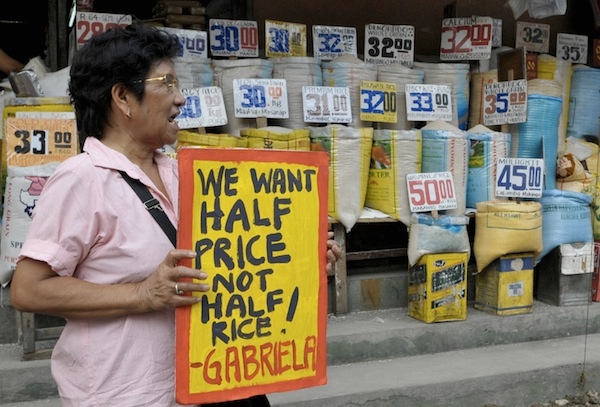Even now, the Arab Spring is seen as a popular outcry for political freedom, but those of us who lived in the Arab world in the years leading up to it know better. The first signs of popular agitation begin at the grocery stall, not at a public debate. The preoccupations of the West — democracy and human rights — are as nothing compared to the need to put food on the table…
The main hope of those who poured into Tahrir Square was shared by the revolutionaries in Tunisia: that sudden and radical change would miraculously mean affordable food. Instead, the Arab uprisings have further weakened the economies, not just in Egypt and Tunisia but in Libya, Yemen and Syria. Hamadi Jebali, the new Prime Minister of Tunisia, was elected on a pledge to bring down food prices, by government mandate if necessary. As he is finding out, no government can legislate for cheap food.
So things are getting worse, not better. Due to the turmoil of revolution and short-sighted policies – or the absence of policies altogether – many in the Middle East are hungrier than before. As world food prices leap again, will we see a rush of support for radical Islamist groups as people crave for change, any change? It’s a recipe for disaster, and you can read John’s piece – and so much more – in the Spectator for as little as £1 a week.





Comments